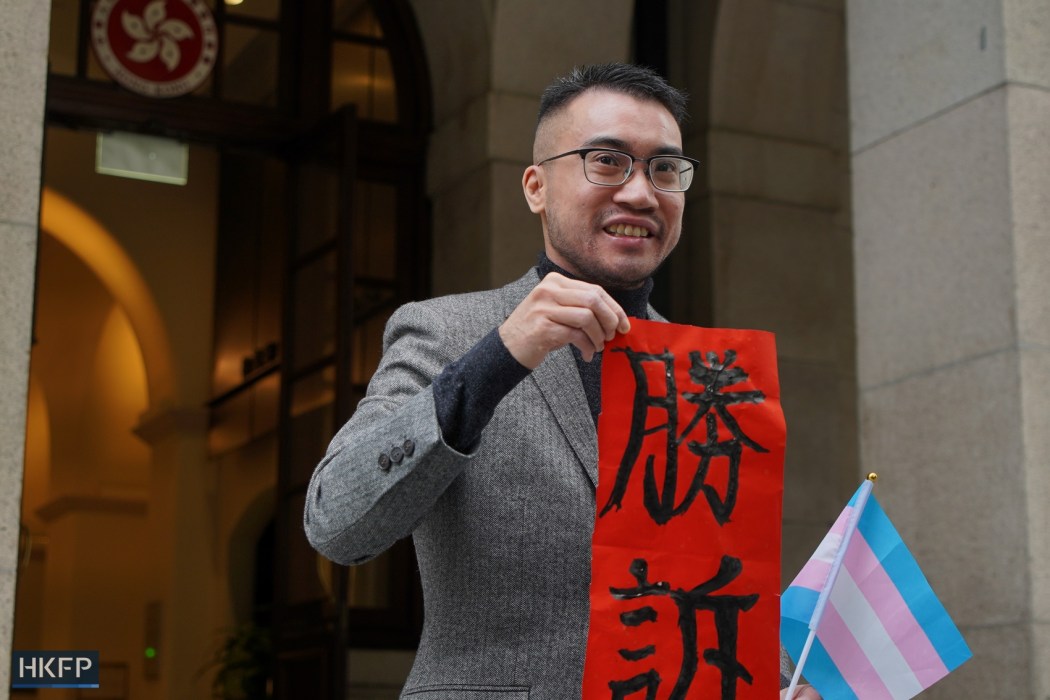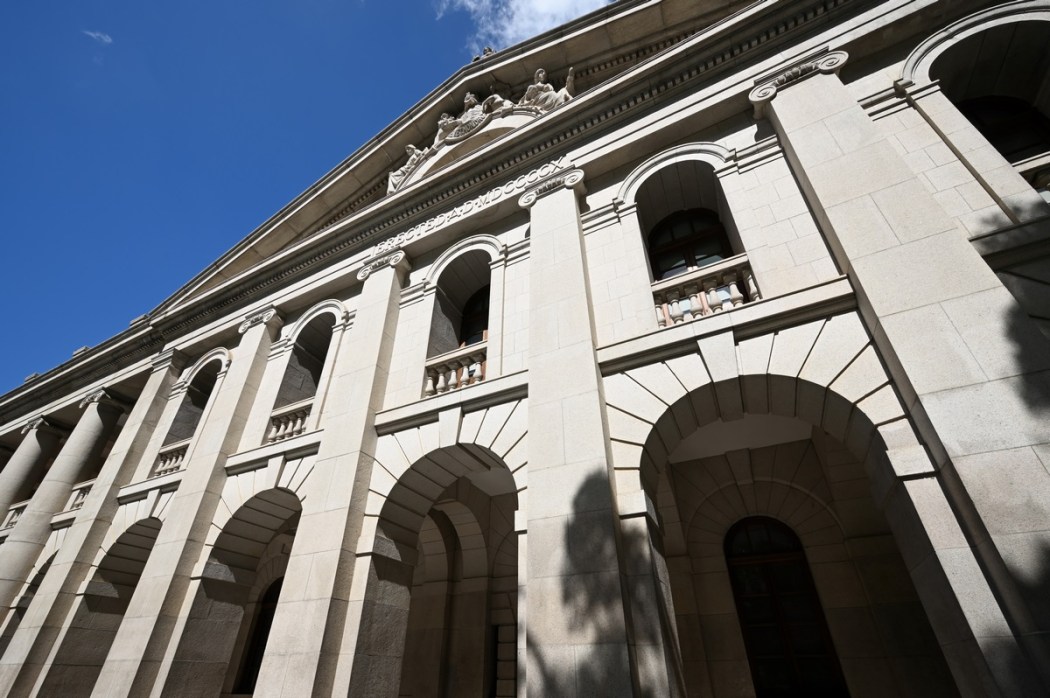Hong Kong’s top court has handed a victory to two transgender men who challenged a government policy that bars transgender people from changing the gender marker on their identity cards if they have not undergone full sex reassignment surgery (SRS).

Speaking outside the Court of Final Appeal on Monday, Henry Tse, one of the appellants, told reporters he had finally “defeated the wicked” and “successfully defended [his] dignity and male identity.”
“Much like myself, many trans folks in Hong Kong Kong, especially my friends who are trans men, have been longing for today’s final victory for years,” Tse said.
Tse, 31, first brought the legal challenge, together with two other trans men, identified as “Q” and “R,” to the High Court in 2018. The trio lost, and Tse and Q lodged an appeal to the Court of Appeal, which upheld the government’s policy – that they cannot alter the gender on their identity card unless they had full SRS – in a ruling handed down last January.
A full SRS procedure includes the removal of the uterus and ovaries, and the construction of a penis or “some form of a penis.” The procedure is “at the invasive end of the treatment spectrum for gender dysphoria” and “not medically required by many transgender persons,” the written judgement handed down on Monday read.

Both Tse and Q are transgender men whose British passports state their sex as male. They had been diagnosed as suffering from gender dysphoria, a condition resulting from discomfort caused by discordance between one’s assigned sex and their gender identity.
Hong Kong’s top court, the Court of Final Appeal, heard the pair’s final shot at appealing last month. Their lawyer argued that the government had failed to present “any adequate justification” for the policy, which posed a disproportionate limit to the appellants’ rights.
The policy also meant that the appellants would have to disclose the “most intimate aspect” of their life, which was their transgender status, when their identity cards showing a female gender marker were checked in daily scenarios, the lawyer said.
‘Delayed justice’
In the written judgement delivered by a five-judge panel, the top court sided with the appellants, ruling that the policy violated people’s constitutional rights to privacy under the Hong Kong Bill of Rights ordinance.

When a transgender person displays their identity card, the “external incongruence” between their physical appearance and the gender displayed on their card could elicit doubt and questions that involve a “violation of dignity and invasion of privacy complained of in this appeal,” the judgement read.
Outside the Court of Final Appeal, Tse held up a “fai chun” – a red banner with auspicious sayings normally hung up around Lunar New Year – with the characters “successful appeal” and a light blue, pink and white flag that represents transgender pride.
“Simple things like going to public bathrooms is impossible for me because I can’t go to the male bathroom, and it would be considered a crime of loitering if I use the female bathroom,” he said. “So now… it will be a lot easier for me to access gender-segregated spaces.

Tse added that he would “rush to change his identity card” once the had government updated its policy per the court ruling. With a new identity card, he said in response to HKFP, he looked forward to going to the gym and being able to use changing rooms without question.
According to the written judgement, “it is not for the Court to re-write the Commissioner’s Policy.” However, “there are various models and approaches that might be considered for re-formulating the Policy in a manner consistent with the rights protected” under BOR 14″ under the city’s Bill of Rights.
Court battles
Activists have often criticised Hong Kong’s limited rights and protection for the LGBTQ+ community, seeing the judicial system as the only hope for reversing laws they say are rooted in discrimination.

Cases involving Hong Kong’s LGBTQ+ rights have often played out in the court of law, which has seen some landmark victories, including one in 2019 in which the top court sided with a gay civil servant applying for spousal benefits and tax assessment, and another two years ago when the court granted equal parental rights for same-sex partners.
Judgements in several other high-profile cases, including whether same-sex couples should have equal access to government-subsidised public housing and whether transgender people can use public toilets designated for their chosen gender before they have undergone surgery, are expected later this month.
Tse called Monday’s outcome “delayed justice.”
“The five-year-long marathon for trans justice has finally come to an end,” he said, though he added that the case should “never have happened” in the first place.
Support HKFP | Policies & Ethics | Error/typo? | Contact Us | Newsletter | Transparency & Annual Report | Apps
Help safeguard press freedom & keep HKFP free for all readers by supporting our team

LATEST FROM HKFP
HKFP has an impartial stance, transparent funding, and balanced coverage guided by an Ethics Code and Corrections Policy.
Support press freedom & help us surpass 1,000 monthly Patrons: 100% independent, governed by an ethics code & not-for-profit.










